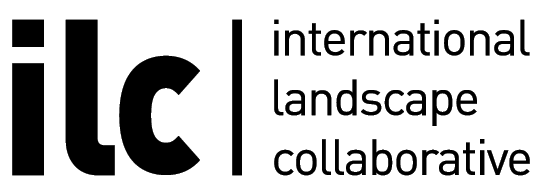Bridging Scales and Disciplines -
Ecological Approaches to City Building
In collaboration with the Toronto Metropolitan University (TMU) and the University of Toronto John H. Daniels Faculty of Architecture, Landscape and Design, the previously held Toronto Summit 2022 discussed city-building in the context of climate change. Learn from a diverse group of participants on how they actively engage city-building by working at the intersection of ecology, design, policy and advocacy.
Panel 1: Toronto’s Regional Metropolitan Landscape System
The first panel focuses on planning approaches and policy frameworks at the scale of the urban regions to establish regional green-blue landscape systems that support ecological functions and resilience, the health and wellbeing of urban populations, as well as guide urban growth and identity.
The keynote entitled - Ecological Approaches to City Building in the Anthropocene - was delivered by Nina-Marie Lister, Toronto Metropolitan University, Ecological Design Lab
The first panel is moderated by Alissa North, University of Toronto Daniels Faculty. Panelists include: Victor Doyle, Former Provincial Manager of Planning for Central Ontario, Gary Pritchard, 4 Directions of Conservation, Marc Ryan, Public Work, Cleo Buster, Friends of Small’s Creek, Jane Welsh, City of Toronto, Jennifer Dowdell, Biohabitats.
Panel 2: Building Ecological Infrastructure
The second panel builds on water as the lifeblood of culture is a unifying theme in urban development. For most societies, water is an ordering element, taking on a cultural role to bring equity, as well as regenerate and heal communities. The two case studies including the Lower Don Renaturalization and the Port Lands Flood Protection project, both demonstrate the potential of designed or natural landscape systems to serve as performative urban infrastructures by cleansing water, regulating floods and by offering recreational opportunities and green spaces that strengthen metropolitan resilience.
Panelists include: Herb Sweeney, MVVA, Landscape Architecture, Nick Nelson, Interfluve River Restoration and Water Resources, Shelly Charles, MinoKamik Collective, Vid Ingelevics, Photographer, Toronto Metropolitan University, and Chris Hardwicke, Principal, O2, and was moderated by Shannon Baker, Waterfront Toronto.
Panel 3: New Methods of Collaborative Practice - International Perspectives
The third and final panel foregrounds individuals who built their own models of practice and research that are informed by landscape, collaboration, and nature-based solutions. The practices all operate in different cultural, political and environmental contexts. They use distinct facets of design and planning to approach issues of socio-environmental conflicts but also recognize, identify and convey the potentials and opportunities which they bear.
Panelists include: Hannes Zander, ILC, Oslo School of Architecture and Design (Norway), Jonas Spring, Design Climate Action (Canada), Adriana Chavez, Oficina de Resiliencia Urbana (Mexico/ USA), Alpa Nawre, Critical Places, (India/ USA), and Lesia Mokrycke, Tropos (Canada), and was moderated by Sonja Vangjeli, ILC, Waterfront Toronto
The Toronto Summit 2022 closed with a discussion between Anne Whiston Spirn, MIT, Carolyn Woodland, CSLA, and Jane Wolff, University of Toronto Faculty, on the issues of Landscape Literacy and Collaborative Practice.
Our Partners
We want to thank our partners who actively supported the mission of the ILC in organizing the 2022 Toronto Summit, namely the Toronto Metropolitan University (TMU) School of Urban and Regional Planning, the University of Toronto Daniels Faculty of Architecture, Landscape, and Design, the University of Waterloo School of Architecture, and the University of Guelph School of Environmental Design and Rural Development. Our gratitude goes to our allied organizations for their generous support including Sprucelab, the OALA, and OAA. This event was made possible through grant funding from the Social Sciences and Humanities Research Council (SSHRC), and Ontario Association of Architects (OAA), as well as sponsorship from many other supporting organizations.









